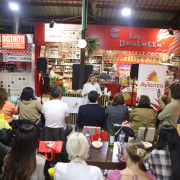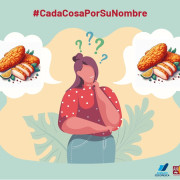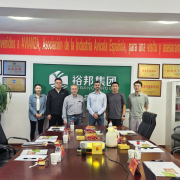AVIANZA, ANFACO-CECOPESCA AND ANICE JOIN TO DEFEND THE NUTRITIONAL AUTHENTICITY OF PRODUCTS OF ANIMAL ORIGIN AGAINST IMITATION VEGAN FOODS
Those responsible for the three most representative organizations in Spain in the production of products of animal origin, both terrestrial and marine, met today with the General Director of Consumer Affairs, Daniel Arribas, in order to express to him the common movement of the entire the Spanish industry.
Under the initiative #CEveryThingByItsName, aim to raise public opinion about the true composition of these vegan foods, which in no way resemble the quality of animal protein or the content of its micronutrients.
Similar action is requested from neighboring countries, such as France or Italy, which have initiated legislative processes in order to ensure accurate information that ensures a correct choice for consumers and thus puts an end to unfair competition.
————
In a strategic and unprecedented alliance to date, ANFACO-CECOPESCA (Organization of the sea-industry complex), ANICE (National Association of Meat Industries of Spain) and AVIANZA (Spanish Interprofessional Association of Poultry Meat) have undertaken a common initiative national level in defense of seafood, meat and poultry products, given the growing presence in the Spanish market of imitation vegan foods whose objective is to take advantage of the reputation of products of animal origin, attempting to mislead the consumer through its advertising and labeling.
For this reason, today the three entities have met with the General Director of Consumer Affairs, Mr. Daniel Arribas, in order to present to you the joint initiative that they will call #CEveryThingByItsName, with which they aim to raise public opinion about the true composition of said vegan foods, and the need to act from the Public Administrations, both at the Consumer level, reviewing the Spanish shelves under the principles of the food information regulations for the consumer in terms of mentions on the packaging or advertising of the product, and developing new specific legislation.
In this regard, although the European Consumer Information Regulation 1169/2011 includes elements of action, the meeting discussed the draft legislative projects that are being produced in France, 2023/0510/FR, or Italy, 2023/0469/IT, with decrees already sent to TRIS that seek to restrict the commercial names of products of animal origin by establishing minimum percentages of content in the ingredients, among other measures. These decrees should constitute a working basis for the ministry in its defense of the Mediterranean diet, an internationally recognized and scientifically proven diet against new vegan trends that employ unfair competition.
It is enough to read the ingredients of these vegan foods to understand that they are derived from vegetable proteins, prepared with the aim of imitating and displacing products of animal origin, presenting themselves as advantageous in the field of health, environmental character and even from a perspective. ethics. To do this, they do not hesitate to use names such as “vegan tuna or chicken”, as well as false advertising messages alluding to the fact that their consumption benefits the environment or is more responsible.
As a reminder, The three associative entities remember that nutrition must be varied and balanced. In this sense, products of animal origin incorporate a unique digestive matrix, with authentic and incomparable elements, related to the quality of their proteins (essential amino acids), or key micronutrients, such as minerals and vitamins, without forgetting the essential Omega 3 fatty acids. , present in fish. These vegan foods can never nutritionally replace products of animal origin.
Regarding sustainability, an argument in which many of these foods abound, we subscribe to the opinion of the Economic and Social Committee, which considers that Sustainability labels or claims that are not based on a widely recognized certification regime should be prohibited. Therefore, it lacks a rigorous comparison of the carbon or water footprint that these vegan foods produce, or the origin of their ingredients, which could precisely conclude the opposite, being more harmful to the environment.
Finally, it must be remembered that Spain is a world power in the food industry, being its vital socioeconomic contribution to many coastal and rural areas, helping with its activity to support thousands of families and with standards of responsibility or animal welfare recognized worldwide, that demonstrate the good choice of consuming Spanish products of animal origin.
It is expected that this initiative will generate deep reflection in the Spanish government and invite it to act, legislating in accordance with France and Italy, thus demonstrating its defense of loyal, truthful and transparent food information, which does not mislead the consumer.
Because a soy preparation is not a vegan chicken, nor is a chickpea pasta a nugget, let's call #CEveryThingByItsName.
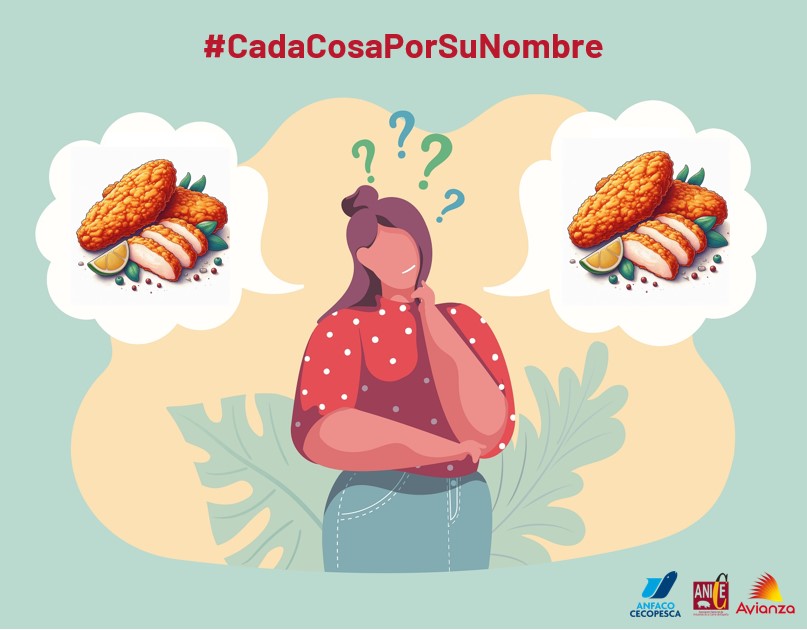


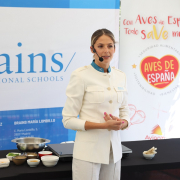
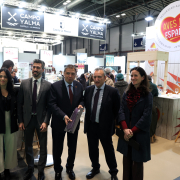
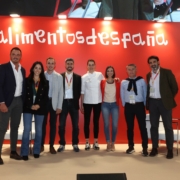 Avianza
Avianza 